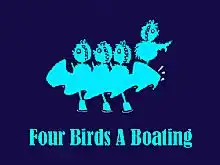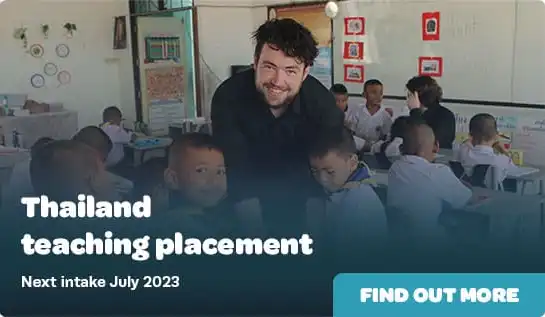- TEFL Courses
- New to TEFL New to TEFL
- Locations
- TEFL Jobs
- Teach Abroad Teach Abroad
- Teach English Abroad
- Teach English in Japan
- Teach English in South Korea
- Teach English in Spain
- Teach English in China
- TEFL Salaries Abroad
- Requirements for teaching abroad
- Teach English abroad without a degree
- How to find teaching jobs abroad without experience
- Can you teach English abroad as a non-native speaker?

- Teach Online
- About Us
- Blog
- Podcast
Using TEFL to Lift Young People Out of Poverty
1 August 2013
My first introduction to TEFL was in 1993 when I elected to spend my summer break at a language school in Baja, Hungary. It was my first tentative adventure abroad as a young teen and a great introduction to the world of English as a foreign language. As a student in the UK, I had been learning French and German for my GCSEs, but other than needing a set number of GCSE points to apply for further education, I had very little requirement for learning any language other than English, especially with no plans of travel to foreign lands, and having never even been on holiday in Britain. But that wasn't the case for my Hungarian students. For them English was so essential, that they they were prepared to pay money to learn and gave up their school holiday to give themselves a head start. They needed English in order to matriculate from school, to gain entry to university, and to compete for the best employment opportunities. Yet as Brits we are often unaware of possessing something that is considered by many to be a gift...English!My Hungarian students were not alone in their desire to learn English as a foreign language, and I met hundreds of uber keen students during my three years teaching English in the former soviet Republic of Georgia, where most students speak at least three languages fluently. The reasons for learning EFL seem varied, but generally include graduation from school, entrance to university, English as the basis for gaining employment especially when working with foreigners and tourists, and applying for foreign aid, grants, donations, and scholarships. But what happens to children who have no access to any form of education? To those who are child laborers or can't attend school because they are needed to care for family members during school hours? For these children, a lack of EFL can be a barrier to fulfilling their destinies and as a result, they remain disadvantaged for the rest of their life, along with their family members. This is the area which my team Fourbirdsaboating are looking to address.
 I moved to Georgia in 2010 and was based in a remote village, with no electricity and very few resources. Finding ways to inspire students, especially those who lacked text books and struggled with English, was tricky, so I resorted to using my battered old laptop and a dvd of the BBC Oceans television series which I happened to have with me. That first session turned my life upside down, and I couldn't believe that the students requested to stay back after school to finish watching the episode. That was the start of a new direction in my own life.
I moved to Georgia in 2010 and was based in a remote village, with no electricity and very few resources. Finding ways to inspire students, especially those who lacked text books and struggled with English, was tricky, so I resorted to using my battered old laptop and a dvd of the BBC Oceans television series which I happened to have with me. That first session turned my life upside down, and I couldn't believe that the students requested to stay back after school to finish watching the episode. That was the start of a new direction in my own life. Four years on, and I am the Founder and Director of my own environmental and STEM education charity, and am using two online platforms (one based in the UK, one based in India) to teach English as a foreign language to young people in more than 56 countries. The project is funded for the most part, by students in the UK, who sell recycled gourmet pens and pencils to their classmates. The proceeds benefit their chosen children's project in a developing country by funding an ipad, solar charger, internet access, BBC Oceans and BBC Planet Earth episodes, and a mini projector, which gets taken out to the recipient project thanks to volunteer TEFL teachers, gap year students, and paying tourists. That package provides an unlimited number of students with access to the free online classroom, which contains worksheets and videos created by the UK students, linked to the British National Curriculum. Some of these resources have even been translated by the UK students, into Spanish, French, German, and other languages, as well as British Sign Language, making them equally accessible to students with a wide range of abilities in English as a foreign language.
But to truly bring the outside world to life, the role of the Fourbirdsaboating team, is to be the eyes and ears of the students, to continue to raise funds for the provision of internet access longer term, and to collect scientific data which can be replicated by the children. To do this, the team of four ladies 'Fourbirdsaboating' will set off on the 7th June 2014 on a life changing expedition across the Pacific Ocean, rowing over 7200 nautical miles from Monterey Bay, California to Honolulu, Hawaii, and on to Cairns, Australia. During the journey, we will visit local schools, use 2D and 3D film to bring alive flora, fauna, sites of interest and the people we meet, and we'll be providing both live and recorded sessions live from 'Mr Toad' our 23 foot ocean rowing boat (named after the children's book 'The Wind in the Willows).
The online classroom will be accessible free of charge, to any TEFL student or teacher, anywhere in the world, either as individuals through WizIQ or through the closed platform with Frog. The sites will be launched in October 2013, and students will be able to follow the ocean row live from the 7th June 2014 until December 2014. Following on from the Pacific row, 'Mr Toad' will be made available free of charge to other ocean rowers, on the proviso that they continue to raise funds for the project and raise the profile of Fourbirdsaboating's work.














Leave a Comment
Your email address will not be published.
(0/1500 characters)
Quick Maths Test